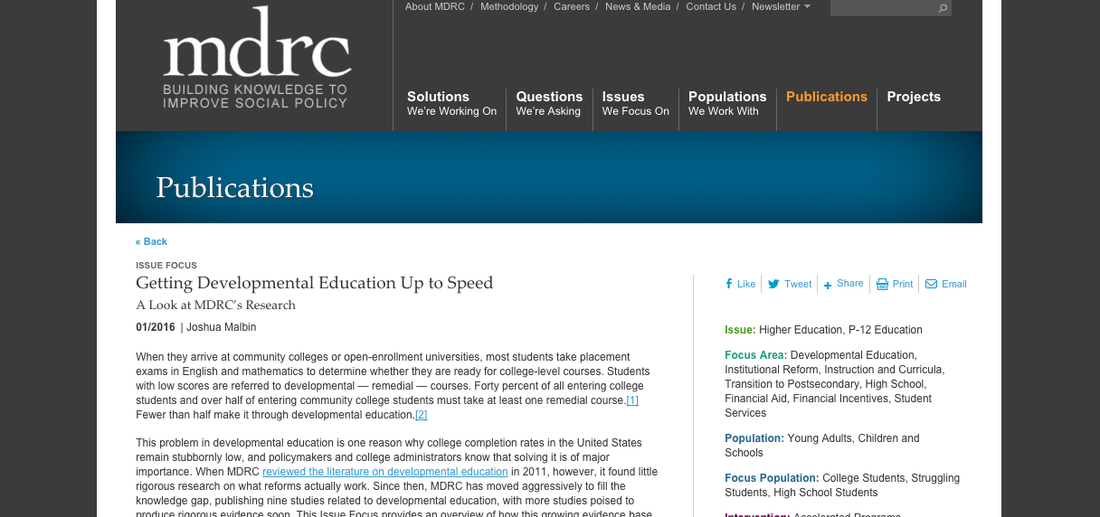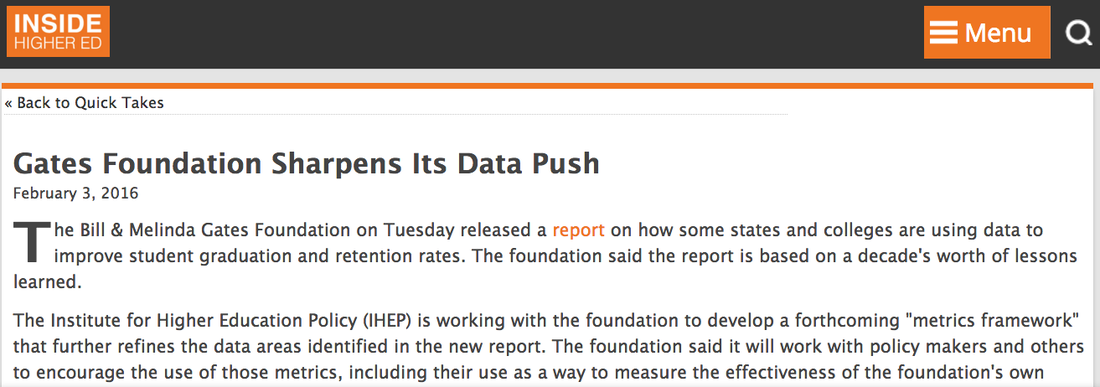|
_When they arrive at community colleges or open-enrollment universities, most students take placement exams in English and mathematics to determine whether they are ready for college-level courses. Students with low scores are referred to developmental — remedial — courses. Forty percent of all entering college students and over half of entering community college students must take at least one remedial course.[1]Fewer than half make it through developmental education.[2]
This problem in developmental education is one reason why college completion rates in the United States remain stubbornly low, and policymakers and college administrators know that solving it is of major importance. When MDRC reviewed the literature on developmental education in 2011, however, it found little rigorous research on what reforms actually work. Since then, MDRC has moved aggressively to fill the knowledge gap, publishing nine studies related to developmental education, with more studies poised to produce rigorous evidence soon. This Issue Focus provides an overview of how this growing evidence base informs four areas of reform. The experimental studies described here assign students at random to a program group or a control group, the most reliable design to estimate a program’s effects. Several of the programs were found to improve outcomes for developmental education students, and one increased graduation rates substantially. View the full text of MDRC's study here. A primer on tweeting for those who have never used the site or have underused it by Rob Jenkins. Published in The Chronicle of Higher Education.
Read the full text of Inside Higher Ed's coverage of the Gates Foundation study on retention here.
|
CategoriesArchives
February 2023
|



 RSS Feed
RSS Feed